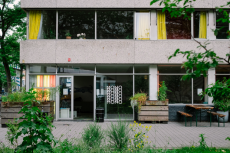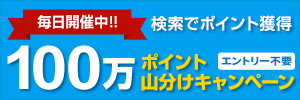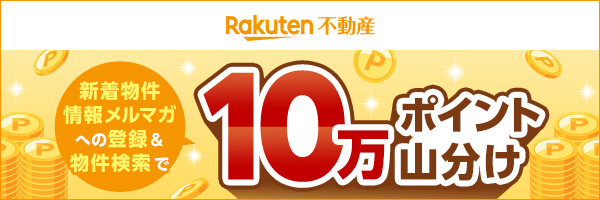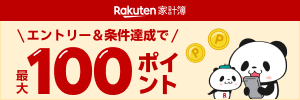.nl Issue: ひとつのカテゴリやコミュニティにおさまらない人々が集まり、飲み、踊り、生活をするるつぼMONOアートディクターShirin Mirachor/Interview with Shirin Mirachor, artistic director of MONO
NeoL / 2020年3月19日 17時0分
.nl Issue: ひとつのカテゴリやコミュニティにおさまらない人々が集まり、飲み、踊り、生活をするるつぼMONOアートディクターShirin Mirachor/Interview with Shirin Mirachor, artistic director of MONO
Photo by Koen Bouman
オランダのクリエティヴ業界を盛り上げているアーティスト11人を取り上げる「.nl Issue」特集。近年、多くの国が国境を閉鎖しナショナリズムが高まり、世界共通の言語でもあるアートを通して団結することが以前よりも重要となってきている。NeoLでは、現在の状況と予測不可能な未来のために、議論ができる空間を様々な形で人々に提供するアーティストやアクティビストへのインタビューに取り組み続けている。本特集では、限界に挑み続け、フロントランナーとして走るオランダに在住するアーティストを紹介し、国の魅力についてはもちろん、今現在の環境、社会構成、政治などの問題を乗り越えるために必要とされる緊急性と行動力を喚起したい。
MONOのアートディレクターであるShirin Mirachorは、ドバイに旅した際に、その都市が持つ芸術と文化のシーンでの魅惑的な可能性を改めて認識。かくして彼女は、4日間のフェスティバルで中東と北アフリカのデジタルアートの分野での新しいアーティストをオランダに紹介するというNew Radicalismを誕生させた。イラク・クルド人のバックグラウンドを持ち、文化的な分野で10年以上働いてきた彼女は、 1つのカテゴリやコミュニティにおさまらない人々のための場所としてMONOを作り、そこはさまざまな文化や民族の人々が集まり、飲み、踊り、生活をするるつぼとなっている。
(→ in English)
ーーNew Radicalismは中東と北アフリカのデジタルアートの分野における新しいアーティストを4日間のフェスティバルで紹介するというものですが、このアイデアはどうやって思いついたんですか。
Shirin「5年前にHipster/Muslimというプロジェクトを開始しました。これは、ムスリムをめぐるステレオタイプと偏見に関するもので、ヒップスターとイスラム教徒が同じような髭を生やしていることから、両者を隣り合わせに紹介することで、他人へ抱く恐怖についての議論を広げようとたのです。彼らは服を交換し、その前後の写真を見ると、誰が誰だか見分けるのが難しくなります。非常に遊び心のあるプロジェクトであり、それを通じて私は普段ニュースでネガティヴな何かに関連して紹介されがちなイスラム教徒のコミュニティにとって新しい何かが必要であると認識することになりました。
東と西の間にあるこの権力構造に出会い、プロジェクトの展示のためにドバイに行って、そこのクリエイティヴシーンがどのような感じか興味があったのでインスタグラムに飛び込んでみたのですが非常に驚きました。全く知らなかった多くのコレクティヴやアーティストの作品を見ましたが、とても新鮮で進歩的だったのです。インスタを見ている間に、うっすらと不安を感じていたのは中東とアフリカで何が起こっているのか手がかりがなかったからなのだと気づきました。このため、私はニューラディカリズムについてより深く考え、その多くが宗教的なものである常にネガティヴなニュースについて考えました。私にとって、急進主義とは、枠の外で考えることです。さらに、デジタル文化の中の中東と北アフリカでは、何かをするために金銭的手段を必要とせず、多くの制限的な境界がないので、アイデアを提示することをより楽しめています。それらをまとめ上げたのがNew Radicalismです」

ーー4日間に渡るフェスティバルで印象深い出来事はありますか?
Shirin「同じような精神を持った人々が1か所で出会ったことですね。私は普段はあまり詩的なほうではありませんが、本当にマジックが起こったのです。学問と実践、知的分野とより多くの都市文化の間で常に1つを選ばねばらないような状態で、私はいつも少し寂しく感じていました。しかし、こうやってクラブナイトと展示会、文化プログラムを1つにまとめあげ、話し合いをしたり、話したりすることは興味深かったです。スピーカーと連絡を取り、クラブで夜にその人に会うのはとても簡単なんです。あと、はっきりとではないものの、北アフリカ出身の人々の新しいロールモデルをここで見つけたいということも言及していました。モロッコのルーツを持っているために常にちょっと「もう一方」としてのけものの気分を味わっていた人は、その日の文化的なリファレンスのすべてが東洋由来のものであり、そこで奏でられている歌がすべて知っているものだったというスペシャルな経験をしました。 1週間半後、女の子が私のところに来て、とても感動して日曜日の間中泣いたと言ってくれました。彼女は初めてモロッコ人であることを誇りに思ったと言ってくれたのです。そういう声を聞いて、とにかくこのイベントを継続し続けたいと願うようになりました」
ーーアーティストはどのように選んでいるんですか。あなたの友人や関係者が主ですか?
Shirin「まずは友人と話すことから始めました。最初は『アラブ人のアーティストを探しているんだよね』という漠然としていて単純な会話で、『アラブのアーティストって一体どういうこと?』という返しがくるような感じで。それは純粋なアジアのアーティストを探しているというのと同じで、本当に意味をなさないものだと気づいたんです。それで中東が実際にどういうものであるかについて非常に多くの考えがあることを受けて、アラブとは一体何なのかを議論することにしたんです。その後、それらの地域全体でただ1人のキュレーターと仕事をするのはばかげていることに気付きました。これらの場所で何が起こっているのか実際には誰も知らないので、代表させるようなキュレーターを見つけることができないんです。そこで最初は4つの国を選び、それぞれの国から最高のアーティストを選ぼうとしたのですが、またしても国境で分けて考えるのは間違っていると思ったので、4人の異なるキュレーターがそれぞれにアーティストを選ぶことにしたのです。たとえば、イスラエルについて、この国を含めるべきかどうかについても議論しました。どちらの選択も政治的に非常に繊細であるため、キュレーターに最良と思われるものを決定させ、彼らに任せることが最善であると判断したのです。音楽や教育プログラムにとってもその方が有効でした。私たちの役割は、自分自身のやり方で決定するのではなく、もっと謙虚であるべきだと思ったのです。だって何がうまく機能し、何が機能しないかを知らないんですからね。ただ、特にコンテンツプログラムについてはとても密接に関与していて、どうやったらオランダでうまくハマるかは知っていたので、その部分は意見を反映させました。ロッテルダムは労働者階級の都市だと知っているので、教育的なレクチャーがベストかどうかはわからないですし、そことのバランスを見つけることも私たちの役割です」

ーーフェスティバルは、ロッテルダム中心部でありながら人の少ないZohoエリアで開催されましたが、フェスティバルとクラブの拠点をここに置いたのはなぜですか?
Shirin「この地域はマイナールーツを持つことで知られていることが主な理由です。私たちにとってはアートをオーディエンスに届けることが重要であり、その逆は重要ではないのです。このために、近隣の18〜25歳の近所の子供たちが一度すべての作品に自由にアクセスでき、セッションにフィードバックする教育プログラムを設けたのですが、そのセッションは非常に活発なものでした。拡張現実を通じてアプリを作成しなければならなかったことが一度ありました。高い教育を受けた人がMONOに来て、あまり快適に感じないというのが理想なんですよ。だってここはホワイトキューブとは大きく異なりますから。近隣の子供達はとてもリラックスしていて、キュレーターと話をし、たくさんの質問をしています。完璧でしょう?」
ーーあなたは文化の分野で10年以上のキャリアがありますが、これまでの経験はMONOのコンセプトを形づくるのにどのように役立ちましたか?
Shirin「私は芸術と経済学のバックグラウンドを持っていますが、それはつまりアートのマネジメントができるということでもあります。私は常に若者の文化とカウンターカルチャーに興味があり、特にクラブに焦点を当てていました。ナイトライフはミステリアスさがあり、夜のクラブでは非常に多くのムーヴメントとカウンターカルチャーが生まれています。だからこれらのシーンとブランドを関連づける『クラブで幸せになるには』という卒業論文を書いたんです。それからある時、私はロンドンの『VICE』でストラデジストとして働く機会を得ました。夢が叶ったのですが、彼らがプレゼンしたミレニアル世代の像はちょっと表面的に感じたのです。そこで自分のプラットフォームを『GET ME』にしようと決め、それが現在に繋がっています」
ーー元々はオンラインプラットフォームであったMONOのバックボーンであり独創的なエージェントであるGET ME。これらのイニシアチブがどのように相互にリンクされているのか、そして設立の理由を教えてください。
Shirin「GET MEはオンラインのプラットフォームとしてスタートしましたが、オフラインイベントの人気が高まりました。私たちを取り巻くクリエイティヴのこの動き全体が大きくなり、GET MEのフィジカルなスペースを継ぐ存在としてMONOができました。その後、実験を行うために基盤を形成する必要があり、(A)WAKEが形成されました。GET MEはエージェントであり、ビジネスのためのものですが、MONOはすべてが集まる場所です。(A)WAKEは消費者と実験のためのものです。 MONOでは物理的なスペースを使うので流動的になれない。だから常に注意が必要ですし、怖かったです。しかしそれは、ショウケースでコレクティヴの作品を提示し、それらを持続可能なものにする機会を与えます。GET ME、(A)WAKE、MONOでは、New Radicalismのようなフェスティバルでアーティストを見つけた場合、その作品をGET MEと(A)WAKEでもディストリビュートすることができるので、ビジネスモデルとしてとても良かった。これは、Dazedやi-D、VICEと同じビジネスモデルです。一方はコンテンツに焦点を当て、他方はその知識と才能をビジネスで売り込むことに焦点を合わせています。これらの要素を組み合わせたら完なんです璧。私たちは多くのことをやっていますが、適切なバランスを見つけるためでもあります」

ーーイラクとクルドのバックグラウンドを持っていますが、ロッテルダムで育ったことは、あなたのバックグラウンドに由来する世界の考え方や認識にどのように影響したのですか?
Shirin「その狭間の感覚だけでなく、知識層と労働者階級の領域の間で働いたことで多くを学びましたし、多くの意味がありました。私はイスラム教徒を謙虚さ、あたたかさ、そして超社会的であると捉えています。9.11があり、そのためにイスラム教徒が受けた扱いの後、私は彼らのために異なるサウンドとプラットフォームを作る必要性を感じました。バックグラウンドは私に多くの動機をもたらしているし、それが故の特権もわかっています。自分のアイデンティティを切り替えることができるので、特定の文脈ではオランダ人の女の子に簡単になり、政策の立案者と話してプロジェクトの資金を得ることができるんですよ。その狭間であるという立ち位置をうまく長く使おうと思います。また、ある若い女性は私に、女性がこのプロジェクトのイニシアチブをとっていることに触発されたと言ってくれました。意識したことは一度もありませんでしたが、そのことで私もより意識的にもっと活用しようと思いました。男性しかいない状態で考えるには難しいこともあるんです。だから、これらの特権とスペースを活用することはとても重要ですね」
ーーロッテルダムは、アンダーグラウンドの音楽シーンが有名です。アムステルダムと比較して、芸術と文化のシーンは商業的ではなく実験的だとか。なぜこの都市は前衛的なアーティストやさまざまなサブカルチャーの人々を惹きつけると思いますか?
Shirin「スペースがあるからだと思いますね。ここでは市内の安い場所を借りることができるんですよ。ロンドンのような場所を見ていると、家賃が高すぎるので実験的なことをするのは難しい。失敗できる余裕がないので、ベタな成功が約束された計画が必要なんです。ロッテルダムは魅力的ですが、同時にお金がない人、特に若者が多いのが難点にもなります。金銭にアクセスする手段を持っていない場合、彼らはどのように起業するのでしょうか? 外からの人々に投資する前に、市はまずロッテルダムベースの先駆け的な人々に投資してほしい。今は正式な芸術教育を受けていない人々に焦点を当てた才能を発掘する夜のイベントがあり、多くの経済援助が受けられているのですが、これは本当に重要だと思います。このところ、人々はお金よりもムーヴメントとイニシアチブに関心が高まっているのが、とても嬉しいです」

Photo by Kalid Amakran Vers Beton
text Ayana Waki
MONO ROTTERDAM
Vijverhofstraat 15 3032 SB, Rotterdam
https://mono.ooo/
https://www.instagram.com/mono_rotterdam/
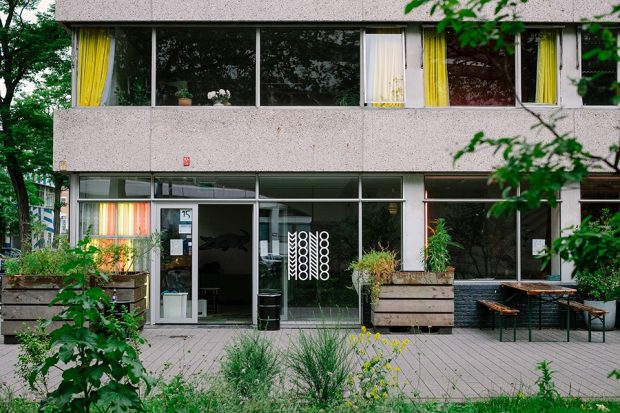
Photo by Koen Bouman
It’s comforting to think that the West is at the forefront of art and technology. An idea that artistic director of MONO, Shirin Mirachor reconsidered when she took a trip to Dubai, realizing the ravishing possibilities that the city held within it’s arts and culture scene. Thus New Radicalism was born; a four day festival that introduced new artists from the Middle East and North Africa in the field of digital arts to the Netherlands. Having an iraqi-kurdish background herself and having worked in the cultural sector for over ten years, she creates a space for the in-between; a place catered to the ones who never complied to one category or community, MONO is a melting pot where people from different cultures and ethnicities come together to drink, dance and live life.
-New Radicalism was a four-day festival introducing new artists from the Middle East and North Africa in the field of digital arts. How did this idea come about ?
Shirin: We actually started a project five years ago called Hipster/Muslim which was about stereotypes and prejudice around being a Muslim. The common ground was the beard that hipsters and muslims have in common. So we tried to open up the discussion about this fear of others by presenting a hipster and a muslim next to each other. They swapped clothes and you see pictures of them before and after which makes it hard to distinguish whose who. It was a very playful project and through that I realized the need for something new for the muslim community because when they are in the news, they are usually associated with something negative. I came across this power structure between East and West and at some point, I was diving into Instagram because we had an exhibition in Dubai for this project and I was curious about what the creative scene in Dubai looked like. I was super surprised by it. I saw so many collectives and artists that I wasn’t aware of and it looked so fresh and progressive. While I was diving into it, I noticed that I got a bit insecure about it as well because I had no clue as to what was going on in the Middle East and Africa. Because of this, I thought more about radicalism and how it is always connected to something negative and a lot of it is religious. But for me, radicalism is more about thinking outside of the box. That plus, the Middle East and North Africa within digital culture, you can see that they feel more comfortable to present their ideas now, as you don’t need these financial means to do something and there aren’t many restrictive borders. All of this came together within New radicalism.

-The Festival was held over four days, can you tell us some highlights from the events that were hosted?
Shirin: It was when like minded spirits met each other in one place. I am not really poetic usually but truly that magic did happen. I always felt a little lonely and in-between; between academic and practice, intellectual field and more urban culture. Always felt that I needed to choose one. But we combined club nights with exhibitions and cultural programs into one. So it was already interesting to have a debate or talk that it is very much easy to get in touch with the speaker and maybe meet that person at night in the club. One thing we mentioned in an abstract way was the fact that we wanted to find new role models for the people who were from North Africa here. It was so special because people who normally would feel already a little excluded as ‘the other’ because he has moroccan roots, would come into a space where all of the cultural references are from the East and now he knows all of the songs that are playing. A girl came up to me a week and a half later and she told me that she needed to cry all Sunday because she was so touched. For the first time she felt proud to be Moroccan. Now I am even more motivated to keep on continuing.

-How did you find the artists for the festival? Were they already friends of yours?
Shirin: It started with talking to some friends. At first I was really vague and naive like ‘What's up, I’m looking for Arab artists.’ And they were like ‘What the fuck is Arab artists?’ It would be the same as looking for pure Asian artists, I guess. It really didn't make any sense so we had a discussion about what is Arab because there are so many ideas about what the Middle East actually is. We then realized it was ridiculous to just work with one curator for the whole region and we couldn't find a curator for the job because no one actually knows as to what is happening in all of these places. In the beginning, we thought about choosing four nations and selecting the best artists from each. But because of this discussion, we thought that it was wrong to think in borders again so it was actually up to the four different curators to choose the artists. When we talked about Israel for example, we had debates on whether we should or should not include it. Both choices would be politically very sensitive so we decided it was best to let the curators decide on what they thought was best and leave it to them. It was also better for the music and educational programs. I think our role should be more humble instead of making it about ourselves. We are not capable of knowing what will work and what won’t. One thing we do reflect upon is that we know what works in the Netherlands. Especially for the content program because I was more closely involved in this area. I know Rotterdam is a working class city so I didn’t know if an educational lecture would be the best. Also finding a balance in that sense.
-The festival took place in the Zoho area, one of the last ungentrified areas near central Rotterdam, where MONO is also situated. Why was it important to situate the festival as well as the club here?
Shirin: A lot because this neighborhood is known for having minor roots. I think it is important to bring the art to the audience and not the other way around. That is why we also set up this educational program where kids from the neighborhood ages 18-25 could be one of the privileged for once and get free access to everything and one on one feedback sessions that felt quite intense. There was one time they had to make an app through augmented reality. For me, the ideal situation would be when someone who is educated would come into MONO and doesn’t really feel that comfortable because obviously it is so different to a white cube. While this kid from the neighborhood is super relaxed and talking to the curator and asking all these questions. That would be perfect.

-You have experience working in the cultural sector for over ten years. How has previous experiences helped you in the conceptualization of MONO?
Shirin: I have a background in art and economics but it was also art management. I was always interested in youth culture and counterculture and very much focused on club nights. I graduated with a thesis called ‘how to be happy within club nights’ because there is something mysterious about the nightlife in that there are so many movements and countercultures establish themselves within clubs and in the night. But it was more about connecting brands to all of these scenes. Then at some point I had the opportunity to work at Vice London as a strategist which was my dream job. But it felt a little bit superficial in how they presented the millenials. It was back then, they do a way better job now but I missed the politics and I felt more comfortable between these fields so I decided to make my own platform GET ME and it became what it is now.
-GET ME, the backbone and the creative agency behind MONO which was originally an online platform. Can you tell us how all of these initiatives are interlinked with one another and the reasons behind the establishment?
Shirin: GET ME started as an online platform but our offline events became more popular. This whole movement of creatives surrounding us became big and it came to a point where we took over MONO as a physical space for GET ME. But then we had to form a foundation as well to do experiments so (A)WAKE was formed. GET ME is the agency and more Business 2 Business while MONO is where everything comes together. AWAKE is more for the consumer and experiments. With MONO, I got a physical space so it was a scary thing to do because with a physical space you can’t be that fluid and it always needs attention. But on the contrary, it gives opportunities to showcase work from collectives and be sustainable for the people around it. Especially with GET ME, AWAKE and MONO if we find an artist through festivals like New Radicalism, we can also distribute their work to GET ME and AWAKE so this business model is nice. It is the same business model that Dazed and iD, Vice have as well. As one part is focusing on content while the other side focuses on selling that knowledge and talent towards businesses. So combining these elements is perfect. It did a lot for us but it’s also about finding the right balance.
-You have an iraqi-kurdish background. Growing up in Rotterdam how did your background influence the way you thought and perceived the world?
Shirin: That sense of in-betweenness but also working between intellectual and working class domain. It taught me a lot. It means a lot. For me I associate Muslims with humbleness, warmth and being super social so I have very different associations with it. After 9-11 and all of the backlash that Muslims received because of this, I did feel the need to create different sounds and a different platform for them. I do believe that my background motivates me a lot. Also I am aware of the privilege that I have. So being able to switch between these identities, I can easily be more of this Dutch girl within certain context and talk to policy makers and get funding for projects. I would like to use that position for good. Young women would come up to me and say they are inspired that a woman runs this initiative. I never really was conscious about that but I am becoming more aware of this as well and trying to use it more. Because sometimes it is a bit hard to be taken seriously in a room with only men in certain contexts. So it is important to use those privileges and the space.

Photo by Kalid Amakran Vers Beton
-Rotterdam is famous for its underground music scene. Compared to Amsterdam I have heard the arts and culture scene is less commercial and more experimental. In your opinion, why do you think this city attracts avant garde artists and people from different subcultures?
Shirin: I think it's because there is space here. Cheap places in the city to rent and especially when you look at somewhere like London, it is hard to experiment because it is too expensive. You need a foul proof successful plan because there is no space for failure so I think that makes Rotterdam more attractive. But also the difficult thing about Rotterdam is that there are a lot of people who don’t have access to financial means, especially the youth. I find that quite an issue because how will they be entrepreneurial if you don’t have the means to do so? I wish to see the city invest in Rotterdam based initiatives first before it invests in people from the outside. Now, there are talent scout nights that focus on people who don’t have this formal art education and I think that this is really important because they are feeding them quite a lot of financial means. People are more about movements and initiatives than money and means these days. Which I think I like.
text Ayana Waki
MONO ROTTERDAM
Vijverhofstraat 15 3032 SB, Rotterdam
https://mono.ooo/
https://www.instagram.com/mono_rotterdam/
関連記事のまとめはこちら
https://www.neol.jp/culture/
この記事に関連するニュース
-
旅行者はGoogleを活用し続けつつ、AI生成のソーシャルメディアコンテンツにも肯定的
PR TIMES / 2025年1月14日 10時45分
-
tHE GALLERY HARAJUKUにて、2025年1月2日(木)より、THEKLA KAISCHAURI個展「FRACTURED」を開催。
PR TIMES / 2024年12月25日 14時45分
-
UESHIMA MUSEUM ANNEX オープンのお知らせ ~ 2025年1月15日より、今津景展を開催
PR TIMES / 2024年12月23日 15時15分
-
Shareholder Proposals to Japan Business Systems, Inc.
PR TIMES / 2024年12月22日 14時40分
-
【愛しとーと】国際機関ESQRの品質優秀ダイヤモンド賞「Quality Choice Prize 2024」を受賞!
PR TIMES / 2024年12月20日 13時45分
ランキング
-
1「高価な家電は使うな」移住先の“謎ルール”に困惑した32歳女性「ドラム式洗濯機や42型以上のテレビ」がNG。破った結果…
日刊SPA! / 2025年1月16日 15時51分
-
2一見好決算も株価は対照的な「ユニクロ」と「無印」、明暗を分けた要因とは?
MONEYPLUS / 2025年1月16日 7時30分
-
3「生理中はコーヒーを飲んではいけない」って本当?【管理栄養士が回答】
オールアバウト / 2025年1月15日 20時45分
-
4不二家、コージーコーナーも苦戦…街からケーキ屋が減っているワケ
日刊ゲンダイDIGITAL / 2025年1月16日 9時26分
-
5「実家じまい」を考え始めたら - 進め方は? いくらかかるのか費用の目安も解説
マイナビニュース / 2025年1月16日 11時25分
記事ミッション中・・・
記事にリアクションする
![]()
記事ミッション中・・・
記事にリアクションする

エラーが発生しました
ページを再読み込みして
ください



